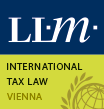Eric Kemmeren
Born in Dongen (the Netherlands) in 1963. As of 1 April 2002, he is professor of international taxation and international tax law at the Fiscal Institute Tilburg of Tilburg University in the Netherlands. As of 1992, he is Of Counsel with Ernst & Young Tax Advisers, and as of 2007 he is a Deputy Justice of the Arnhem Court of Appeals (Tax Division), the Netherlands. In 2001, he obtained his PhD from Tilburg University on a thesis entitled Principle of Origin in Tax Conventions, A Rethinking of Models. He is an editor of the EUCOTAX Series on European Taxation and chair of the editorial board of EC Tax Review, published by Kluwer Law International. Furthermore, he is a co-initiator and coordinator of the EUCOTAX Network and the EUCOTAX Winter Course. He was also a visiting scholar at New York University (spring 1999) and Short Term Consultant of the International Finance Corporation (Member of the World Bank Group, Washington, DC 2004). He regularly gives guest lectures at foreign universities (visiting professor, inter alia, at WU Vienna, Université de Panthéon-Sorbonne (Paris I) (Paris), Northwestern University (Chicago), and Luiss (Libera Università Internazionale degli Studie Sociali, Rome), Katholieke Universiteit Leuven (Belgium), University of Florida (Gainesville), University of Antwerp (Belgium) and he is a frequent speaker at international congresses, seminars, and courses. Furthermore, he has been a member of the ECJ Task Force of the Confédération Fiscale Europeénne since 2011 and was head of the Department of Tax Economics (2013-2019) and member of the Advisory Commission EU Arbitration Convention for the Netherlands (2013-2019). He was and is a member of various academic and non-academic commissions.Courses:
Tax Treaty Developments: Source versus Residence Principle
Current tax treaty practice has been based on the residence principle for a long period. This practice is rooted in reports of the League of Nations published in the 1920s. A question that can be raised is whether the concepts of the 1920s are still valid nowadays. The course aims at a better understanding of flaws in double tax conventions because of the application of the principle of residence, and of opportunities which the application of the principle of source or the principle of origin offers to mitigate such flaws. The principle of residence offers opportunities for tax planning without really affecting the way income is produced. It may even cause tax treaty abuse. These phenomena trigger reactions by contracting states in order to protect source state tax jurisdiction under double tax conventions. Developments in these fields will be discussed not only from the perspective of legal and economic principles, but they will also be illustrated with practical examples of tax planning and counter-reactions in order to better understand the functioning and the non-functioning of current double tax conventions. Furthermore, developments at the OECD level and of EU law affecting double tax conventions will also be discussed. At the OECD level, developments concerning BEPS and Pillars I and II will be addressed. One of the developments at EU level is that EU law reduces the dominant position of the principle of residence in favor of the source principle. Finally, alternative tax treaty systems based on the principle of source or origin will also be discussed.
Back to list

